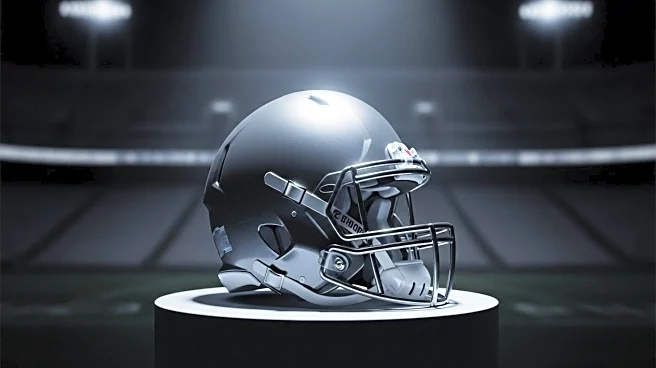What's Happening?
Bryce Underwood, a freshman quarterback, is drawing significant attention in college football due to his impressive early performances. Despite being only 18 years old, Underwood has shown remarkable potential, leading to high expectations for his future in the sport. He was the top recruit in the country and has already received a substantial NIL offer from Michigan, reportedly worth $10 million, which influenced his decision to commit to the Wolverines over LSU. Underwood's physical attributes, including his size and arm strength, combined with his on-field performance, have led many to believe he could become a standout player. In his first three games, he has accounted for four touchdowns and demonstrated his dual-threat capability with a notable rushing performance against Central Michigan.
Why It's Important?
The emergence of Bryce Underwood as a potential star quarterback is significant for college football, as it highlights the increasing impact of NIL deals on player recruitment and team dynamics. His early success and the substantial financial offer he received underscore the changing landscape of college athletics, where players can now capitalize on their marketability. This development could influence recruiting strategies and the competitive balance among college football programs. Additionally, Underwood's performance could set a precedent for how young athletes are evaluated and developed, potentially affecting coaching strategies and player management in the sport.
What's Next?
As Underwood continues his freshman season, the focus will be on his development and how he handles the pressures of high expectations. Michigan's coaching staff will likely work to refine his skills and manage his growth, balancing immediate performance with long-term potential. The team's performance and Underwood's role in it could influence future recruiting efforts and the program's standing in college football. Observers will be keen to see how Underwood adapts to challenges and whether he can maintain his trajectory towards becoming a leading figure in the sport.
Beyond the Headlines
Underwood's situation also raises questions about the ethical implications of large NIL deals for young athletes and the potential pressures they face. The financial incentives and public scrutiny could impact their personal and professional development, necessitating support systems to help them navigate these challenges. This case may prompt discussions about the role of NIL in college sports and the need for regulations to ensure fair and sustainable practices.










